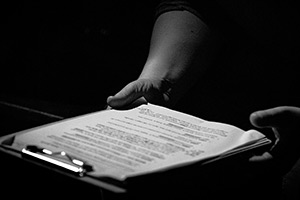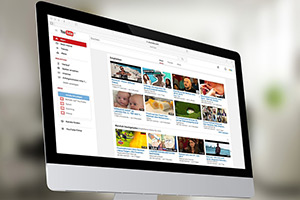Mother's Best Child talk about how they turned their passion into a business
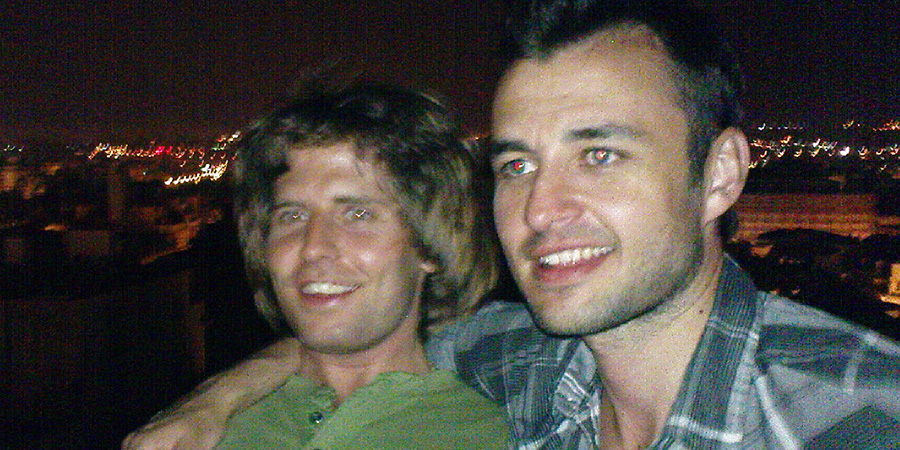
We talked to Guy Davidson and Dan Clarke, the founders of production company Mother's Best Child, who have made a name for themselves with various TV and online projects, perhaps most notably their fast-turnaround satirical sketches for the BBC and Channel 4. We spoke to them to find out more about how they do what they do:
Hi Guy and Dan. How did you meet?
Dan: Guy was working as a waitress in a cocktail bar in Nottingham. I went in for a solitary pitcher of Woo Woo and we just hit it off. It just so happened that we were both studying Multimedia Production at Trent University.
Guy: After we graduated, we went back home to London to take the creative industries by storm, both as runners. Twice a week, for a number of years, we'd meet up in the basement of Dan's work and write sketches then shoot them on the weekend. Tom Baby was our first good one, which made us think 'yeah, we can do this'. So we called ourselves Mother's Best Child and decided to carve ourselves into the Mount Rushmore of comedy.
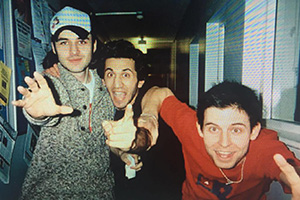
You then decided to make things more formal, by starting a company?
Dan: Yeah. We left our jobs in the summer of 2012. It was Guy, Guy's brother Jack and me, working out of Guy's kitchen. As we had very few contacts and no real development slate to take out, we subsidised our income by shooting corporate videos for dentists and second hand car dealers. We travelled all over London, and to Derby.
13 months later, we were down to our last £500. We were like, 'this was fun while it lasted', which was a lie because it was really stressful and we'd lost all of our money and savings. Jack saved the company by getting us a gig making content for a car dealership in Oadby, on the outskirts of Leicester, and we began to claw it back.
At this point, did you have any contacts in the industry?
Guy: In the car industry? Yes. In TV? Not really, but we've still got loads of contacts in the East Midlands second hand car trade, so if you're ever looking for a reliable little runabout we can sort you out, 5% commish.
You're now in a different place though. Tell us about some of your success stories.
Guy: It wasn't until we started to manipulate news footage that we got a little bit of success and had something distinctive to build on. We made a sketch where we green-screened Dan stealing a TV from 10 Downing Street while Cameron was talking about the riots and it went viral. We followed that up when we mashed Wenlock and Mandeville - the Olympic mascots - into the riots, which went viral again. We actually got a cease and desist letter from the Olympic lawyers but the MBC train had already left the station; there was no stopping us. That DIY greenscreen and clip manipulation thing really gave us a style and made us realise we could react quickly to the news.
Dan: Find My Audience was the first narrative we made and that worked because of Luke McQueen. He was the first proper actor we worked with; he totally blew us away - seeing him in Edinburgh in 2013 was our equivalent of the Sex Pistols Lesser Free Trade Hall gig, except replacing Johnny Rotten with a three-nippled man from Bedford. He showed us that if we wanted to do this properly, we had to work with actual actors and comedians, because they turn a good script into an amazing one. We did the Frankie Boyle stunt [where McQueen tricked Boyle fans into coming to see him, video below] in the final episode and it did well for us and got us known in the industry because it was a bit risky.
Guy: In 2016 we got commissioned by BBC Three to make Sabotage, which was 34 reactive sketches that went out three times a week. At the same time, we wrote six sketches for Revolting on BBC Two.
We had four viral hits in three months, iPound, an iPhone spoof, Trump/Sherlock then The Real Housewives of ISIS. They all did pretty well, especially TRHO ISIS, it went proper worldwide. It's had over 200 million views. That showed people we could write and could turn good quality stuff around quickly.
Dan: Last year we made a sketch show called B@IT for Channel 4 which was fun. B@IT spoofed internet news, pranking audiences who believed the sketches to be real, and would share them based on the opening few seconds or the video title; The Handmaid's Tale has been adapted for Panto or This man gives showbiz news to the homeless. It got millions of organic views and an endless scroll of funny, furious and quite bizarre comments, mostly from Guy's dad.
Most comedy creators dream of getting to work with broadcasters. How did you come to be in that position?
Dan: We didn't have any contacts at any channels, weren't performers, didn't have a body of work or a track record, so we just had to start making stuff on our own all the time and then send it to people. We've always wanted to make comedy that said something, was inventive, or was the first to react to a story, which I think made us stand out. Something could happen in the news and we could get a sketch made into someone's inbox within a few hours. It made what we were doing relevant and distinctive, which helps you get noticed. But the most important bit is that we were relentless and believed in what we were doing, which is the key to anything; it sounds naff, but it's true. We also had tonnes of fun doing it too, which is a bonus.
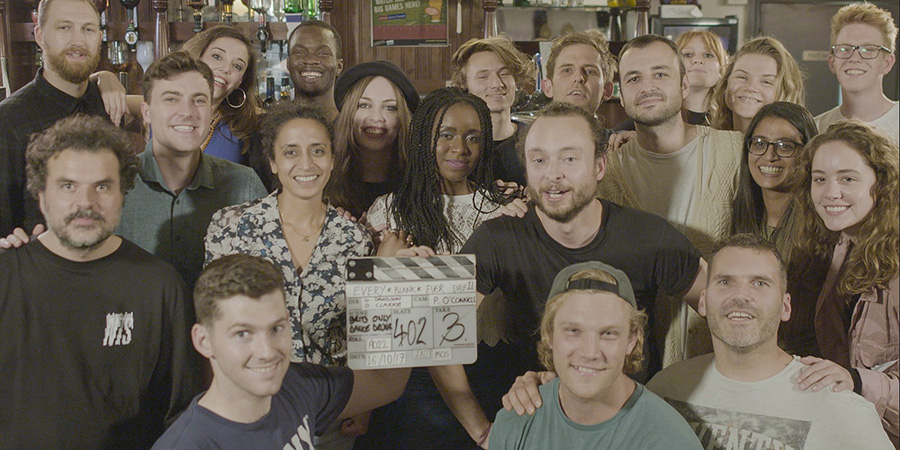
Guy: We wanted to make as many sketches as we could in our free time. They started off mostly just Dan and I - Dan behind the camera and me in the front of it. I gave it a go but I am no Kevin Costner. The best move was Dan learning After Effects, meaning we could start manipulating footage. That was the turning point. From there we got a few online hits and [in 2012] got asked to do Mashed on Channel 4 by a producer called Caroline Clarke. Once we had something on TV which we could send around, it made getting meetings easier.
Once you have something to show, just send it around and push for meetings.
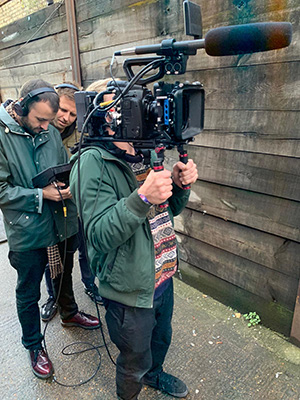
Do you think that same DIY attitude you started with is still with you today?
Guy: 100%, that's who we are. We started by taping up green screen on walls, hanging them from Dan's mum's washing line, using desk lamps as lighting, making props, learning software programs, hair and make-up, how to shoot, how to record sound. We both love punk rock and its DIY style. Obviously as you grow, us being involved in everything isn't sustainable, but being able to do multiple things is a good mindset to pass through to our team. It gives you a collective agility and top to bottom knowledge that other companies don't have.
Dan: With us there's always a rush to react to something, to get a joke out there, so we always wanted to move fast. Today it's not always like that, in fact taking your time on things is definitely something we've learnt - B@IT is a shining example of that - but the DIY thing never leaves you and it gives you that 'fuck it, let's just go and shoot something'. It keeps it fresh and fun and makes you feel like you have control over what you do, and what ends up on screen is the best representation of how you want something to be. It makes you accountable.
Guy: Our pitch for B@IT was that Dan and I were going to write, produce, direct and edit the whole thing ourselves because that's how we felt we'd get the show we wanted, and it worked.
Can you please talk us through the process of creating those B@IT sketches?
Dan: We've been told that you can't satirise the internet and that the world is beyond parody right now, which is clearly nonsense. Pretty early on, we knew we wanted to satirise the internet and comment culture. Today the most innocuous videos get people writing the most detestable things, so we wanted to annoy those people.
Guy: We went about writing ridiculous but just about believable clickbait titles - that was the remit we gave ourselves; each sketch idea had to be distilled into an interesting title; "This farm milks middle-aged men". We then got an amazing casting director called Emma Crompton who introduced us to some of the best acting talent this mad little island has to offer. We wanted these sketches to look and feel real, so the cast had to play everything straight. We're really happy with the result and we got to work with Paul Danan, so, you do the math.
There is a very consistently high quality throughout all your B@IT sketches - both in terms of how they look, and their gag rates. What are your quality control mechanisms?
Dan: First off, we both have to find it funny, if one of us isn't sure about an idea we rework it or come up with something new. We've always tried to keep our sketches short and punchy, if it means losing jokes because they take too long to set up, we'd rather do that than have a long self-indulgent sketch. Often sketches can just go on for ages with the same joke. It's dull and unimaginative. We're also quite flexible on-set, Guy can almost touch his toes, and in the edit; we don't stick rigidly to the script and allow a bit of freedom to change things.
What makes you guys different to other production companies?
Dan: Our comedy has something to say and our company stands for something; we're independent and we've got a purpose. We want everything we do to say something, to punch up, to be original and to always move forward and try new things. Guy and I are old mates and we want that closeness and unity to translate into our team; we push each other forwards, we win and lose together. We want everyone to believe in what they're doing, that's mega important to us because it keeps people happy and it shows in the work.
Because we started doing everything ourselves, we encourage everyone we work with to have more than one skill; can you shoot and edit, write and use Photoshop, record sound and fire poi. It just makes us more agile as a team, which is ace.
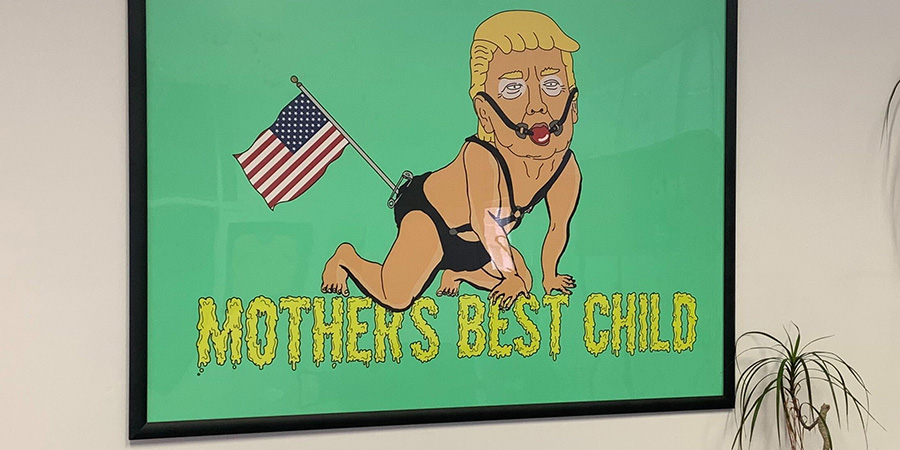
Guy: We've been making stuff ourselves since we've been teenagers, so we have a good instinct for what works and what doesn't. That's a massive bonus. We also run a creative studio called TOAD, so we've got a digital side of the brain. Our understanding of that world, how to make things quickly, to targeted audiences, how to package them - that sets us apart - we're not a company playing catch up. We were always being told by people that we were 'too internet' and that things wouldn't land but look where everything has gone. Online/internet isn't the little sister/brother any more, so look who's laughing now grandad.
Dan: And finally, because we've both been sort of self-isolating in our bunker for the past 15 years making things, we're prepared for what's happening right now, so the comedy bus can keep rolling along the road to Laughterville... or Watford.
Looking back, how does it feel to have gone from working on a kitchen table to having formed a company that is regularly working with broadcasters?
Dan Good. It's something we're very proud of. It's mad to think that it's been eight years non-stop stress; I mean laughter. We've worked on some amazing projects, and worked with some awesome people, and it's nice to think that we've done it our own way on our terms. That means a lot.
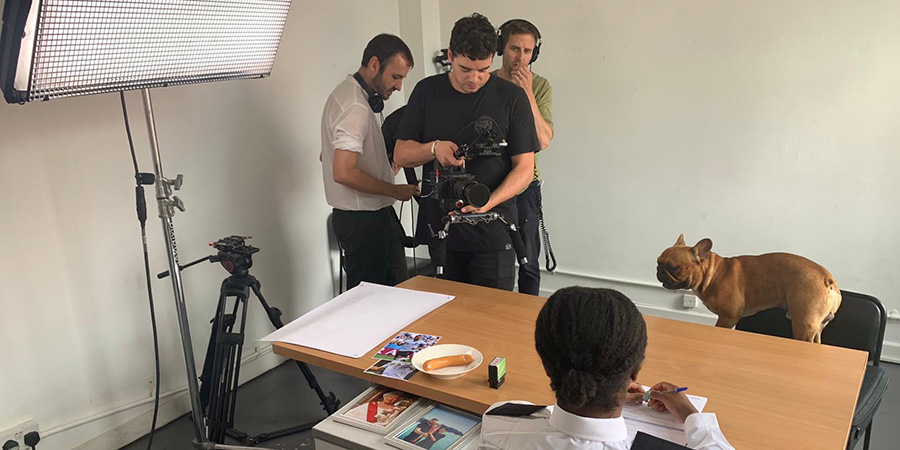
What tips have you learnt about delivering comedy online?
Dan: We've made lots of mistakes; but we always try to learn something from them. Sometimes you think a gag is going to work and it doesn't. B@IT showed us that clickbait titles do work. When we started, people were more patient online, you had 10-15 seconds for a nice bit of set up, now you sometimes have to give the joke away up top.
Online content dictates that you have to do something attention grabbing in the first, 3rd, 15th and 60th second of your piece, which is a good structure for writing. Learn about the platform, what works on what, what durations work etc. It's a lot to know, but can really help how you make stuff.
Meanwhile what advice would you give to anyone looking to get into the world of writing and filming comedy?
Guy: Don't copy anyone. Don't second guess what's going to be popular. Write what you find funny. Use proper actors/comedians as they are better than that mate (me) you've roped in.
Shoot things yourself and learn After Effects and Premiere Pro. Save up your money and spend it on sound equipment because sketches can work with good sound and poor footage, not the other way round.
Make stuff all the time, get things wrong, learn from them, email people, hassle them, go to comedy nights, put on your own comedy night.
Dan: Today is a great time to make comedy because everywhere we turn there's hypocrisy. If someone tells you satire is dead and to make something more relatable, don't listen to them. Satire has never been more relevant and relatability is the death nail of creativity.
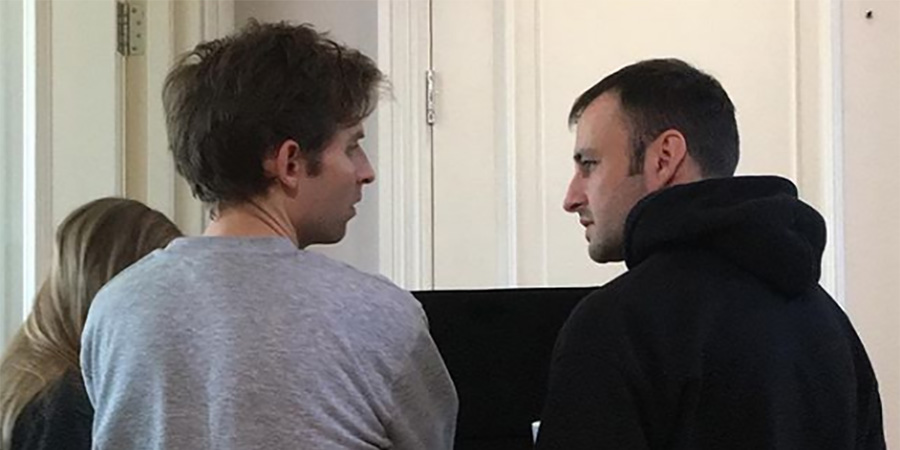
What are the plans for growing Mother's Best Child, going forward?
Guy: We're working with Vice Studios and Merman on our first sitcom, which is going to be fun and are doing more things that are blending the TOAD side with MBC. We've opened an office in LA, which is going super swell.
Dan: We're working on an animated series for E4 where some of the UK's top rappers and lyricists talk about mental health and offer clinically supported ways of coping with it. This isn't a set up for a joke by the way, it's totally serious. Through lockdown we've been doing lots of work with King's College on the TOAD side of the business about the mental health effects it's been having on people, and the project with E4 is aimed at helping teens. For many obvious reasons, mental health problems are at an all time high, so we're trying to make something that encourages conversation about it by people that our audience respects.
Guy: We'd also planned on holidaying in Leicester but that's had to take a backseat.
You can find Mother's Best Child at mothersbestchild.com
This article is provided for free as part of BCG Pro.
Subscribe now for exclusive features, insight, learning materials, opportunities and other tools for the British comedy industry.


